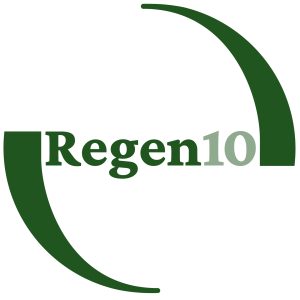Regen10: Farmers at the centre of the transition to regenerative food systems for people, nature, and climate
 Regen10 is a multi-stakeholder collaborative platform aimed at scaling regenerative food systems globally within a decade. The platform’s inception was celebrated at COP27.
Regen10 is a multi-stakeholder collaborative platform aimed at scaling regenerative food systems globally within a decade. The platform’s inception was celebrated at COP27.
The initiative puts farmers at the heart of a global effort to transform food systems so that by 2030 over 50% of the world’s food can be produced in a way that drives positive outcomes for people, nature, and climate. It is based on the principle of deep inclusion to ensure no one is left behind and informed by a science-based approach.
Regen10 will drive alignment and convergence of existing food and farming sector initiatives and scale-up collective action by bringing together farmers, businesses, investors, indigenous people, NGOs, and policy makers to accelerate system change.
In this context, WFO is the convenor of the farmers globally to expand the Regen10 footprint beyond the existing partners and generate opportunities for farmers and their organisations across the globe.
WFO actively participates in each of the three hubs that make up the Regen10 initiative:
- Within the Framework Workstream, WFO is in charge of co-designing a farmer-centric approach to regenerative food systems, ensuring that the farmers’ voices are heard and duly considered through farmers’ consultations. Once the framework has been compiled with specific indicators, WFO will oversee a campaign to embrace it and a capacity-building program to enable farmers to adopt it.
- WFO contributes to the Landscape Hub by gathering data and evidence from existing initiatives across all Members to learn how best to integrate and scale regenerative practices.
- Within the Global Hub, WFO ensures the farmers inform the creation of an inclusive, global collaborative platform to engage widely and to identify how policy, business, finance, research, and capacity-building can best support approaches that deliver positive outcomes for people, nature and climate.
Lastly, as a member of the Core Partners Group, WFO participates in the Steering Committee.
Regen10 is coordinated by the Meridian Institute and supported by The Rockefeller Foundation and IKEA Foundation. Founding partners include WFO, the Food and Land Use Coalition (FOLU), the International Union for the Conservation of Nature (IUCN), Leaders Quest, Meridian Institute, SYSTEMIQ, the World Business Council for Sustainable Development (WBCSD).
Learn more at https://regen10.org/
2023 WFO – Regen10 First-ever Global Farmers’ Consultation on Regenerative Food Systems
In June 2023, Regen10 and the World Farmers’ Organisation (WFO) joined forces for a common purpose.
They convened the first-ever Global Farmers’ Consultation on Regenerative Food Systems during the WFO Annual Meeting in South Africa (WFOGA2023).
Over 150 farmer leaders from all over the world, including women and youth representatives, came together and exchanged ideas, knowledge, and experiences.
The focus was clear: defining “regenerative food systems” for farmers and exploring enabling conditions to embrace regenerative farming practices. Farmers listened to each other, shared success stories, and actively engaged in transparent and thought-provoking discussions. This collaborative effort has set a promising path towards future initiatives.
2023 Zero Draft Outcomes-Based Framework
On December 6, 2023, during COP28 in Dubai (UAE), Regen10 published its “Zero Draft Outcomes-Based Framework.”
The document is the first iteration of Regen10’s work and will form the basis of extensive consultation and testing over the next 12 months, before the launch of its Outcomes Framework, at the end of 2024.
The zero draft represents a holistic and inclusive approach to measuring progress towards regenerative food systems, while improving farmers’ livelihoods, benefiting nature, and reducing greenhouse gas emissions.
Regen10 was founded as an international collaboration to put farmers at the heart of the transition towards regenerative food systems, while learning from Indigenous Peoples and farmers themselves, many of whom are already implementing regenerative and agroecological approaches.
Click here to read the Progress Report: https://regen10.org/wp-content/uploads/sites/19/2023/12/Regen10-FrameworkReport-Final.pdf